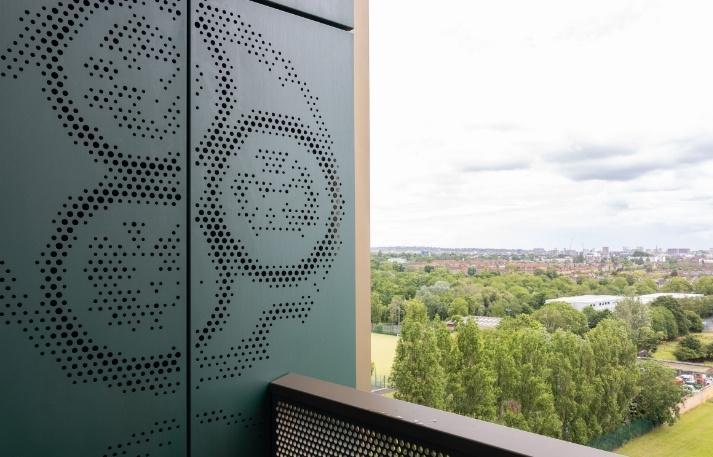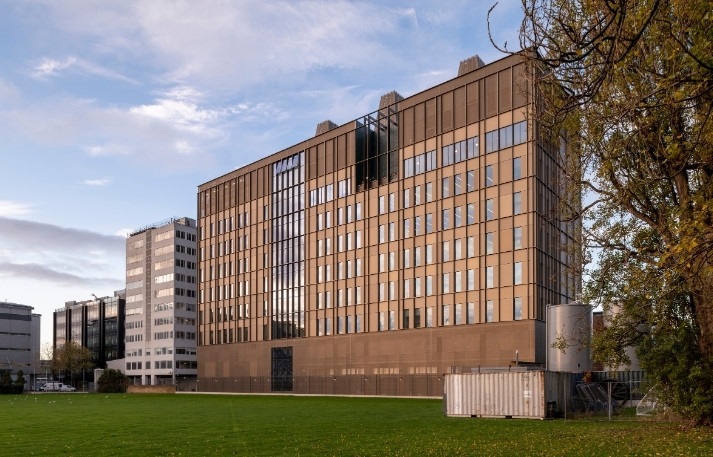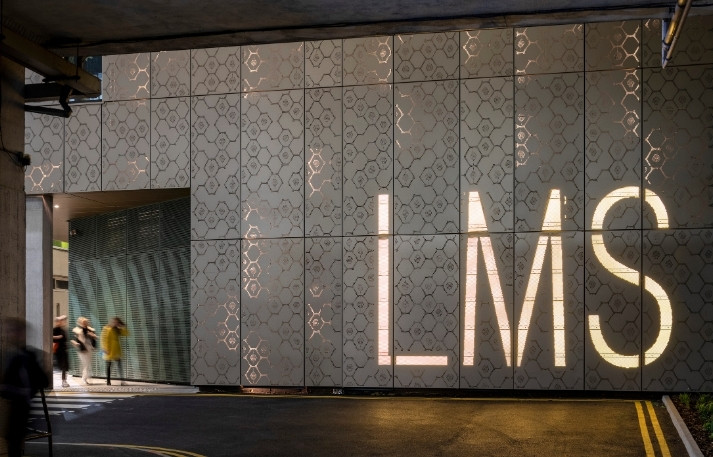History of the LMS
Since opening its doors in 1970, the LMS has changed its name and moved locations but always been an MRC-funded institute dedicated to driving clinical research forward to benefit human health.
1959 – The MRC Clinical Research Centre at Northwick Park
In 1959 the MRC and Ministry of Health decided to create and build a new MRC Clinical Research Centre (CRC) in conjunction with a new district general hospital. They envisaged a site where clinicians and scientists would work alongside each other, sharing expertise to drive advancements in understanding aligned with practical improvements to patient care.
In 1966, building work began on a site at Northwick Park in North West London. The facility was completed in 1970 and opened by the Queen.
An article in Nature in 1968 titled, “Northwick Park Britain’s Bethesda?”, wrote:
“The idea is that physicians and their patients will have access to the latest developments and that, at the same time, research workers will have their feet kept on the ground by contact with the everyday problems of medicine. This, of course, does not mean that the centre will treat only patients from the general hospital, but it does mean that physicians and research scientists will be in continuous contact.”
This is a spirit that holds true today across the LMS, but exemplified by the Chain-Florey Clinician Scientist Training Programme.
1986 – Moving to the Hammersmith Hospital site
In 1986 the Director of the CRC published “The Stoker Report and the Future of Northwick Park” in The Lancet. In 1989 the MRC announced the closure of the MRC CRC at Northwick Park, moving the majority of research groups to the Hammersmith Hospital site, merging with the Royal Postgraduate Medical School and the MRC Cyclotron Unit to form the new MRC Clinical Sciences Centre (MRC CSC).
Hammersmith Hospital started life as a workhouse and infirmary in 1902, with its first iteration being a corrugated iron building providing care during a smallpox epidemic. The site was taken over during WWI for use as the Military Orthopaedic Hospital, to care for wounded soldiers, officially becoming Hammersmith Hospital in 1925, and developed expertise on the effects of crush syndrome and kidney failure as a result of treating air raid victims during WWII. Today it is world-renowned as a hub for clinical research.
The LMS today

2017 – A new chapter
Directors of the MRC CSC included Dame Kay Davies, Alexander Stewart “Sandy” McNeish, Christopher Higgins and Dame Amanda “Mandy” Fisher.
In 2017 the MRC CSC was renamed the MRC London Institute of Medical Sciences (LMS), marking a new chapter in the institute’s history. Professor Sir John Savill, Chief Executive of the Medical Research Council at the time said of the name change:
“We focused on the fact that this is an institute. And what is an institute? It’s a big investment, it’s interdisciplinary, it involves lots of scientists at various different stages of development, it’s directed by an inspirational person who has power of it. The LMS is funded by the MRC, so it does medical science, and it’s in London – a great international city. So I want to really look forward to the next 25 years of this investment.”
2023 – State-of-the-art research building
A new purpose-built research building on the Hammersmith Hospital site was completed in December 2022. In January 2023, Wiebke Arlt joined as the new Director of the LMS. At the time she said:
“I am delighted to take on the leadership of the LMS at this exciting point in its development, just when occupying a brand new, purpose-built building. I am very much looking forward to working with the LMS investigators and staff to deliver transdisciplinary team science, in synergistic interaction with Imperial College London and the wider national research environment. We will take a novel, challenge-based approach to tackle major questions of relevance to human health and disease – watch this space!”


2023 – MRC Laboratory of Medical Sciences
In October 2023, the MRC London Institute of Medical Sciences was renamed to MRC Laboratory of Medical Sciences to better reflect its national role and to foster inclusivity, showing that it is dedicated to serving the entire UK, not just the capital city.
Today, the LMS leads the way in supporting and translating innovative discoveries to drive innovation and health.
Latest research news
New AI-driven tool could help find heart disease drugs faster
Published 29 December 2025
4 Minutes reading time
Research reveals how ancient viral DNA shapes early embryonic development
Published December 19, 2025
5 Minutes reading time
Key protein ACE2 could protect against high blood pressure and diabetes
Published December 19, 2025
4 Minutes reading time
